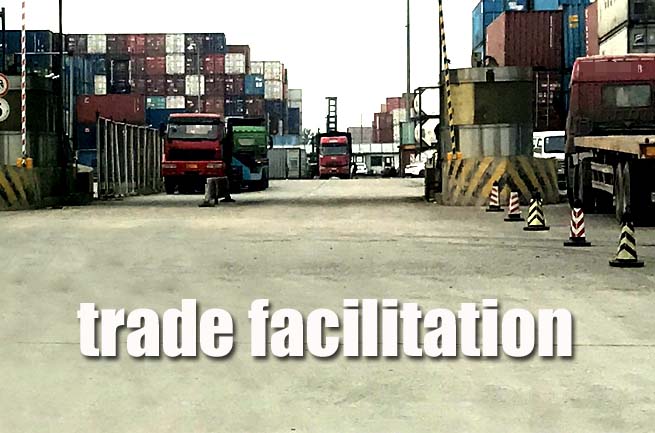Make Institutional Innovations to Promote Trade Facilitation
2018-05-16

By Zhang Qi, DRC
2018-3-26
The progress of global value chain has made trade facilitation a prominent factor influencing a country’s role in global trade and its international competitiveness. Meanwhile, the advance of international division of labor has made the cross-border flow of goods, especially parts, components and intermediate goods become increasingly active. It has also made enterprises become more prominently influenced by trade costs in terms of improving their international competitiveness. While making endeavour to move towards the high end of the industrial value chain, enterprises have a crying need for trade facilitation. Getting involved in the global division of labor is an important approach for developing countries to participate in globalization and fuel domestic industrialization. However, the insufficient trade facilitation and high trade costs are the main barriers refraining them from attracting foreign investment and participating in global trade. At present, China is striving to edge up towards the high end of industrial value chain by releasing several policies to promote trade facilitation in recent years, such as the building of free trade pilot zones and the implementation of relevant measures to enable trade port regulators to share information, simplify the checking procedures, support mutually on law enforcement and advance the reform of regulatory modes. China has made much progress through the above-mentioned policy measures, but it should be noted that there remain much room for improvement including the promotion of clearance efficiency and the reduction of trade costs. On the whole, the following hard nuts are yet to be cracked before China could further enhance its trade facilitation. First, trade facilitation performance presents an unbalanced manner in different regions. Second, the current regulatory institutions and modes are not adaptable to meeting the demands for the development of new economy and service-oriented manufacturing industry. Third, some regions do not have adequate open-oriented platforms to guide and support local reform and innovation. In view of these problems, the government needs to tap the potential, accelerate innovation and take the following measures to satisfy the needs for further trade facilitation. First, the government needs to continue to attach importance to facilitating trade. Second, the government needs to enhance trade regulation concept and the transformation and innovation modes from the perspective of the whole industrial value chain. Third, the government needs to further strengthen the cross-sector communication and cooperation. Fourth, the government needs to make more efforts to explore institutional reforms based on the experience gained by free trade pilot zones.














